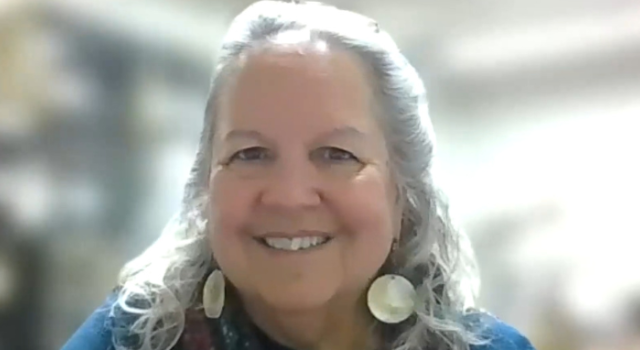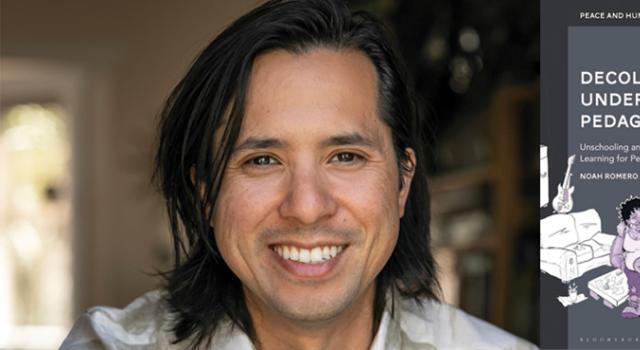Native American and Indigenous Studies
Whether addressing the ways U.S. housing and education policy affects contemporary Native American communities, tackling issues of medical anthropology in pre-colonial times, or analyzing the economic function of Native American art, Native American Studies can serve as the focus of a student's concentration or be incorporated into a broader concentration in any number of fields.
Student Project Titles
- Challenging the Narrative with Global South Perspectives
- Treaty Law: A History of Relationships
- Decolonizing Nature
- Community-based Indigenous Language Revitalization
- Material Heritage of Palestine
- The Removal of Indian Tribes in Southeast United States, 18th and 19th Centuries
- The Cost of Tribal Sovereignty: The Health, Environmental and Economic Effects of Radioactive Waste Disposal Sites on Native American Tribes
- Nutrition and Type II Diabetes in the White Mountain Apache
- Double-Edged Sovereignty: The Paradox of Federal Indian Law
- Bone Pathologies in the Ancient Black Mesa Anasazi
- From Painted To Tainted: Conflicts Between Western Shoshone and Southern Paiute Worldviews and Governmental Nuclear Testing
- Robbing Culture: New Age Appropriation of Native American Spiritual Practices
- Hopi and Zuni Childbirth Practices
Sample First-Year Course
Decolonial Undergrounds: Indigenous Self-determination through Subculture
What do punk rock, heavy metal, skateboarding, hip-hop, and comedy teach us about Indigenous liberation? This course frames subcultural communities led by historically colonized but inherently sovereign people as vital movements for justice, equity, and anti-racism. Bringing Native American and Indigenous Studies in conversation with theories of subcultural sociality, this course aims to foster a deep understanding of how Indigenous and minoritized people agitate for collective rights while dynamically preserving ancestral knowledge.
Sample Courses at Hampshire
-
Indigenous and Decolonizing Education
-
Indigenous and Decolonizing Pedagogy
-
Decolonial Undergrounds: Indigenous Sovereignty and Self-Determination through Subculture
-
Education for Liberation: Decolonizing Teaching and Learning
-
Global South Perspectives on Indigenous Liberation
-
Settler Nation: Race, Immigration, and U.S. Politics
-
U.S. Imperialism and Hawai'i
sample courses Throughout the Consortium
-
History of Turtle Island: Introduction to Native North America (Mount Holyoke College)
-
Indigenous and Decolonial Ecologies (Mount Holyoke College)
-
Native American Activism in the Northeast (UMass)
-
Native American and Indigenous Studies and the Environment (Smith College)
-
Native American Literature (UMass)
-
Native New England (Smith College)
-
Rethinking Pocahontas: An Introduction to Native American Studies (Amherst College)
-
When Corn Mother Meets King Corn: Cultural Studies of the Americas (Amherst College)
Facilities and Resources
Five College Native American and Indigenous Studies
The Five College Certificate in Native American and Indigenous Studies provides students with the opportunity to acquire a knowledge and understanding of the development, growth, and interactions of the indigenous peoples and nations of the Western Hemisphere. The program emphasizes the many long histories of Native American Indians as well as their contemporary lives and situations. A holistic and comparative interdisciplinary approach underlies the Certificate Program's requirements, enabling students to become familiar with the diversity of indigenous lifeways, including cultural forms, institutions, political economies, and modes of self-expression. In addition to this broader perspective, the program places some emphasis on the Native peoples of the Northeast so that Five College students can become acquainted with the history, culture and presence of indigenous peoples in this region.
Curricular Pathways for Hampshire Students in Native and Indigenous Studies
NAIS students at Hampshire have access to a broad array of transdisciplinary coursework in Indigenous studies.
In addition to coursework, faculty and staff associated with Hampshire’s NAIS program can offer direct advising on community-embedded projects undertaken in collaboration and consultation with Indigenous organizations, nations, and communities locally, regionally, nationally, and globally.
> Download a PDF with more details.
Banner image by Dr. Norma Marrun at the University of Las Vegas Nevada



